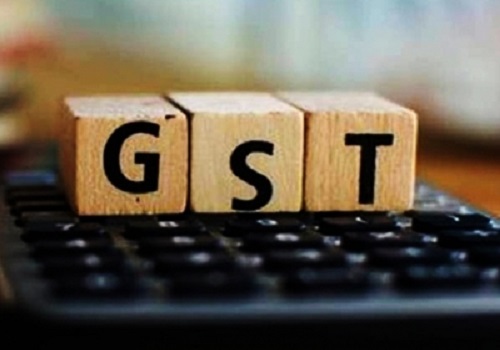India Strategy : GST 2.0 -The Discretionary Dividend by Yes Securities Ltd

* Macroeconomic Impact through the Multiplier Effect: From a fiscal standpoint, the GST reform is estimated to result in a government revenue loss of approximately Rs.48,000 crore per fiscal year. However, this trade-off is expected to boost private consumption. India’s marginal propensity to consume (MPC) is estimated at 0.75 (FY25), implying that households spend 75 paise of every additional rupee of income. The effective multiplier is calculated at 1.89. Based on this framework, the boost to consumption (ΔC) from the GST cuts is estimated at about Rs.87,400 crore. While part of this stimulus may leak into imports, the net effect remains reasonably positive. The multiplier impact of this additional consumption is expected to translate into a 30bps increase in GDP growth. However, since the GST cuts will largely take effect from H2 FY26, their full impact will only be visible in FY27, with FY26 benefits confined to a 15 bps rise in GDP growth. Nevertheless, this uplift comes at a crucial juncture, providing the economy with a buffer against external headwinds such as US tariff measures and sluggish global demand. This aligns with our projections that the Indian economy can sustain real growth in the 6.4–6.5% range in FY26, even as nominal growth remains relatively subdued at 8.5–9%.
*Premiumisation at the Bottom of the Pyramid: A key structural impact of the GST reforms will be most visible at the bottom of the income pyramid, where lower tax rates on essentials enhance affordability and unlock incremental disposable income. For low- and middle-income households, even modest savings on food staples, personal care items, and utilities free up purchasing power that can be redirected toward higher-value consumption. This drives a shift from unbranded to branded goods or from entry-level to mid-tier offerings. The resulting “premiumisation” effect not only improves living standards but also expands the footprint of the formal sector, compresses the size of the informal economy, and strengthens tax compliance over time. Large consumer-facing firms, particularly in FMCG, retail, and discretionary segments, stand to benefit from rising volumes, deeper market penetration, and stronger brand adoption.
* Reallocation of Spending Toward Discretionary Goods: An equally significant dimension of the reform is its reallocation effect, wherein savings on nondiscretionary items create additional headroom for discretionary consumption. As households spend less on essentials such as food staples, soaps, and detergents, the released disposable income is increasingly directed toward higher-value goods and services. This shift is likely to boost demand in categories such as consumer durables, two-wheelers, small cars, apparel, electronics, and leisure activities including retail, dining, and entertainment. The outcome is a dual benefit: while affordability improves in essential categories, the broader economy experiences a surge in aspirational spending, which supports demand in industries with higher value addition, deeper supply chains, and stronger employment multipliers.
* Sectoral Beneficiaries: The sectoral benefits of the GST rejig are likely to be uneven but highly consequential. The fast-moving consumer goods (FMCG) sector will see the most immediate boost, with tax rates on soaps, detergents, biscuits, and packaged food items cut from 12–18% to 5%. Automobiles are another clear winner, as small cars, hybrids, and electric vehicle components will now attract only 18% GST instead of 28%, significantly lowering ownership costs and potentially resetting demand trajectories. Similarly, consumer durables and electronics are expected to benefit from the rate shift to 18%, unleashing pent-up demand. Building materials, particularly cement, also see a major cut, which will ease construction costs and spur housing and infrastructure activity. Meanwhile, fertilisers, agrochemicals, textiles, and renewables gain from similar rate reductions, though certain segments such as high-value apparel and coal face higher levies to balance fiscal considerations.
Please refer disclaimer at https://yesinvest.in/privacy_policy_disclaimers
SEBI Registration number is INZ000185632
























